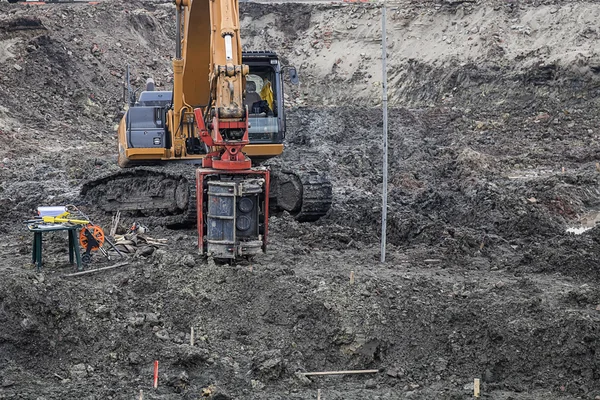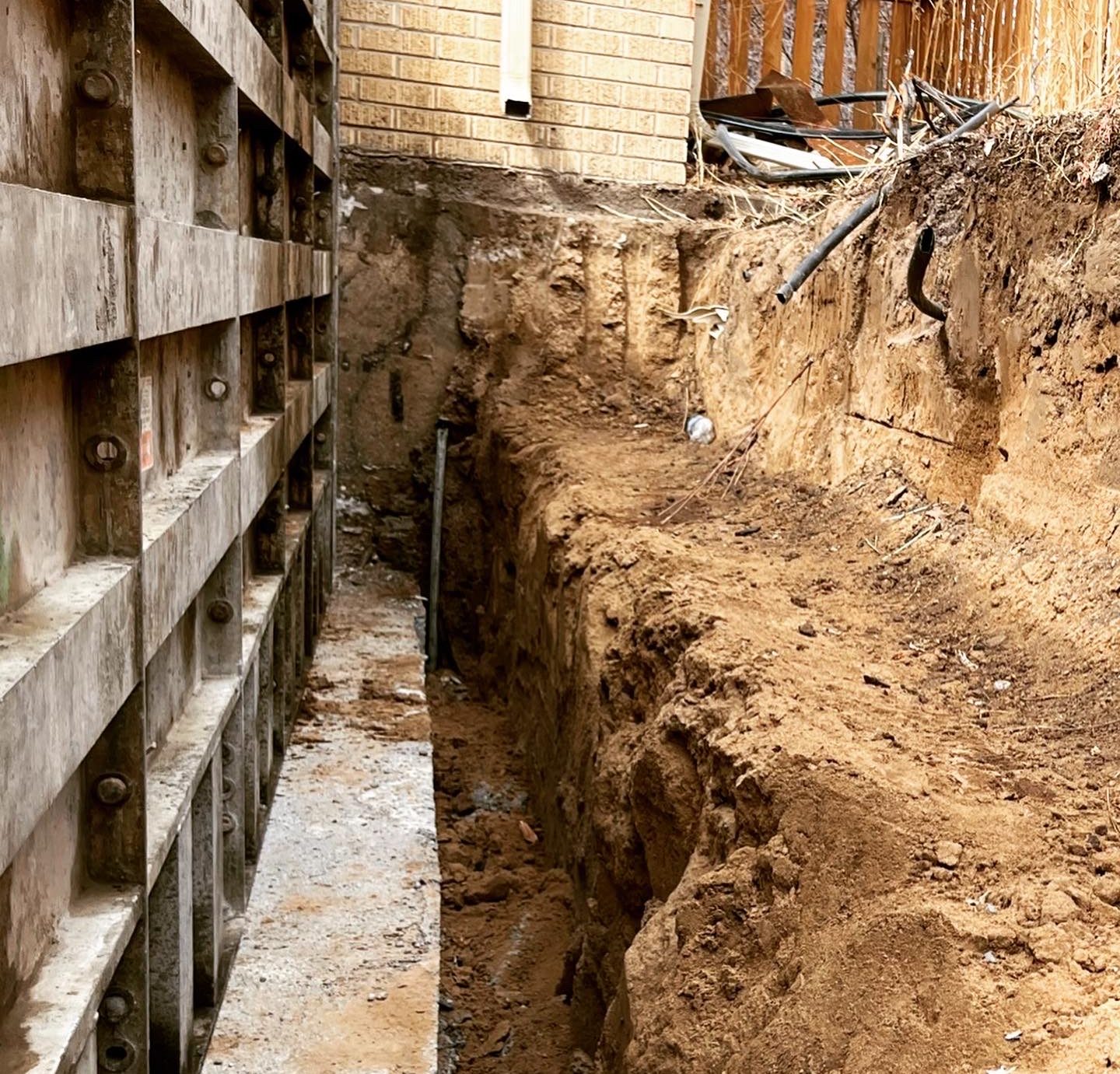A Complete Guide to Becoming an Effective Geotech Engineer
A Complete Guide to Becoming an Effective Geotech Engineer
Blog Article
A Comprehensive Review of the Trick Obligations of Geotechnical Engineers in Site Characterization and Ground Enhancement Techniques for Design Solutions
Geotechnical engineers are important to the effective execution of design tasks, tasked with the crucial responsibilities of site characterization and the application of ground enhancement strategies. Their job involves a thorough evaluation of subsurface conditions, utilizing numerous testing approaches to recognize soil and rock residential or commercial properties. This foundational knowledge not only educates style choices yet additionally reduces possible threats connected with ground instability. As we explore the complex roles of these professionals, it comes to be obvious how their know-how shapes the security and efficiency of engineering remedies. What specific methods and evaluations stick out in this essential technique?
Duty of Geotechnical Designers
Geotechnical engineers play a pivotal role in the design and building and construction of infrastructure by evaluating the behavior of dirt and rock underneath the surface area - geotechnical industry. Their responsibilities incorporate examining subsurface conditions to inform layout choices that make sure architectural stability and safety. By performing detailed analyses of dirt homes, consisting of shear compressibility, toughness, and permeability, geotechnical designers provide vital information that affects the choice of suitable building products and methods
Along with analyzing dirt auto mechanics, geotechnical engineers are entrusted with recognizing prospective hazards such as landslides, sinkholes, and ground settlements. Their know-how assists minimize risks connected with these geotechnical sensations, therefore safeguarding both the atmosphere and public safety and security. They also work together very closely with other engineering self-controls, guaranteeing that geotechnical factors to consider are incorporated right into overall job layout.
Additionally, geotechnical engineers involve in the analysis of existing frameworks, providing recommendations for retrofitting and fixings when essential. Their comprehensive understanding of soil-structure interaction is vital for the growth of lasting framework options. In general, the function of geotechnical engineers is essential to the effective realization of construction projects, ensuring they are secure, durable, and compliant with regulatory standards.

Site Characterization Processes
Efficient site characterization processes are vital for comprehending the subsurface problems that affect task design and execution. Geotechnical engineers utilize an organized technique to gather, evaluate, and analyze information pertaining to rock, dirt, and groundwater qualities. This process begins with a complete review of existing literary works and historical website data, offering understandings into previous website problems and potential challenges.

Information evaluation adheres to fieldwork, where designers utilize geostatistical methods to interpret searchings for and develop geological models. Through thorough website characterization, geotechnical engineers lay the foundation for effective task execution, decreasing unanticipated issues and optimizing resource allotment.
Dirt and Rock Screening Methods
While comprehending subsurface problems is crucial, the choice of ideal soil and rock testing techniques is just as essential for exact evaluation and style. Geotechnical engineers utilize a range of screening strategies to review the mechanical and physical residential properties of dirt and rock products.
Research laboratory examinations, such as Atterberg limits, grain size analysis, and unconfined compressive strength tests, offer necessary information on dirt actions under different moisture conditions and loading scenarios. These examinations assist establish dirt category and anticipate negotiation or shear stamina attributes essential for structure layout.
In-situ screening approaches, including Standard Penetration Tests (SPT), Cone Infiltration Examinations (CPT), and pressure meter examinations, allow designers to gather information directly from the ground. These techniques offer important insights right into the soil's thickness, uniformity, and stratification without the requirement for considerable sampling.
Rock testing normally includes core tasting and lab analysis to evaluate properties like uniaxial compressive strength and rock high quality designation (RQD) With each other, these dirt and rock screening techniques enable geotechnical designers to make enlightened choices relating to site-specific challenges, making certain the security and stability of engineering options.
Ground Improvement Strategies
Ground renovation methods are vital for enhancing the engineering residential or commercial properties of soil, consequently increasing its load-bearing ability and decreasing settlement. These approaches are crucial in dealing with obstacles presented by troublesome or weak soils, which can dramatically impact the security and toughness of structures.
Various ground improvement methods are utilized, including compaction, grouting, and dirt stabilization. Grouting, on the various other hand, includes injecting a liquid product into the ground to read review load voids and boost soil communication.
Soil stablizing incorporates an array of approaches, from chemical ingredients to mechanical therapies, focused on improving the dirt's resistance to erosion and deformation. Methods such as lime stablizing or cement mixing change the residential properties of the dirt at a fragment level, improving its general performance.
Value of Geotechnical Analyses
Geotechnical assessments play an important role in the planning and layout of design projects, as they give vital info about the subsurface problems. Recognizing soil residential properties, rock formations, groundwater levels, and potential geohazards is important for guaranteeing the security and security of structures. These evaluations allow designers to make educated decisions pertaining to website selection, layout specifications, and building and construction methods.
The significance of geotechnical assessments prolongs past preliminary job phases; they are critical in danger administration and expense efficiency. By determining possible problems early, such as soil negotiation, slope instability, or extreme groundwater, engineers can develop ideal mitigation strategies, reducing the possibility of expensive delays and architectural failings. These analyses support conformity with governing requirements and improve the sustainability of design methods.

Final Thought
Finally, geotechnical engineers are crucial to ensuring the security and stability of design projects via extensive site characterization and ground renovation methods. civil consulting engineers. Their methodical strategy to examining subsurface conditions, incorporated with their recommendations for reliable ground modification, considerably improves dirt buildings and load-bearing ability. The expertise of geotechnical engineers not just facilitates enlightened job planning but additionally guarantees conformity with policies and cultivates efficient interaction amongst stakeholders, ultimately adding to successful design results
Geotechnical designers play a critical function in the design and building and construction of framework by analyzing the habits of soil and rock underneath the surface area. By performing thorough analyses of soil residential or commercial properties, including shear stamina, leaks in the structure, and compressibility, geotechnical designers provide important information that affects the selection of suitable building and construction products and strategies.
In enhancement to assessing dirt mechanics, geotechnical engineers are entrusted with identifying possible threats such as landslides, sinkholes, and ground settlements. Geotechnical engineers employ an organized strategy to gather, assess, and interpret information pertaining to rock, dirt, and groundwater characteristics. By determining potential issues early, such as check that dirt negotiation, incline instability, or too much groundwater, designers can develop appropriate reduction strategies, decreasing the visit their website possibility of structural failures and expensive delays.
Report this page